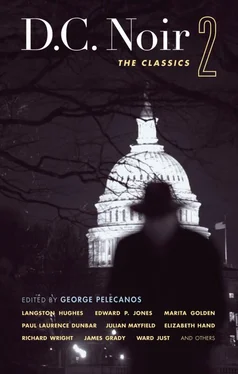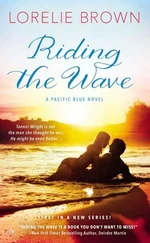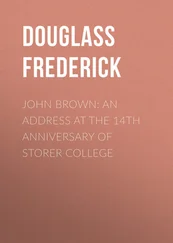But mostly I wore a white poet’s blouse or frayed striped boatneck shirt, droopy black wool trousers, red sneakers, a red velvet beret my mother had given me for Christmas when I was seventeen. I chain-smoked Marlboros, three packs a day when I could afford them. For a while I smoked clay pipes and Borkum Riff tobacco. The pipes cost a dollar apiece at the tobacconist’s in Georgetown. They broke easily, and club owners invariably hassled me, thinking I was getting high right under their noses. I was, but not from Borkum Riff. Occasionally I’d forgo makeup and wear army khakis and a boiled-wool navy shirt I’d fished from a dumpster. I used a mascara wand on my upper lip and wore my bashed-up old cowboy boots to make me look taller.
This fooled no one, but that didn’t matter. In Southwest I was invisible, or nearly so. I was a girl, white, not pretty enough to be either desirable or threatening. The burly leather-clad guys who stood guard over the entrances to the L&F were always nice to me, though there was a scary dyke bouncer whom I had to bribe, sometimes with cash, sometimes with rough foreplay behind the door.
Once inside all that fell away. David and I stumbled to the bar and traded our drink tickets for vodka and orange juice. We drank fast, pushing upstairs through the crowd until we reached a vantage point above the dance floor. David would look around for someone he knew, someone he fancied, someone who might discover him. He’d give me a wet kiss, then stagger off; and I would stand, and drink, and watch.
The first time it happened David and I were tripping. We were at the L&F, or maybe Washington Square. He’d gone into the men’s room. I sat slumped just outside the door, trying to bore a hole through my hand with my eyes. A few people stepped on me; no one apologized, but no one swore at me, either. After a while I stumbled to my feet, lurched a few steps down the hallway, and turned.
The door to the men’s room was painted gold. A shining film covered it, glistening with smeared rainbows, like oil-scummed tarmac. The door opened with difficulty because of the number of people crammed inside. I had to keep moving so they could pass in and out. I leaned against the wall and stared at the floor for a few more minutes, then looked up again.
Across from me, the wall was gone. I could see men pissing, talking, kneeling, crowding stalls, humping over urinals, cupping brown glass vials beneath their faces. I could see David in a crowd by the sinks. He stood with his back to me, in front of a long mirror framed with small round light bulbs. His head was bowed. He was scooping water from the faucet and drinking it, so that his beard glittered red and silver. As I watched, he slowly lifted his face, until he was staring into the mirror. His reflected image stared back at me. I could see his pupils expand like drops of black ink in a glass of water, and his mouth fall open in pure panic.
“David,” I murmured.
Beside him a lanky boy with dirty-blond hair turned. He too was staring at me, but not with fear. His mouth split into a grin. He raised his hand and pointed at me, laughing.
“Poseur!”
“Shit — shit …” I looked up and David stood there in the hall. He fumbled for a cigarette, his hand shaking, then sank onto the floor beside me. “Shit, you, you saw — you—”
I started to laugh. In a moment David did too. We fell into each other’s arms, shrieking, our faces slick with tears and dirt. I didn’t even notice that his cigarette scorched a hole in my favorite shirt till later, or feel where it burned into my right palm, a penny-sized wound that got infected and took weeks to heal. I bear the scar even now, the shape of an eye, shiny white tissue with a crimson pupil that seems to wink when I crease my hand.
It was about a month after this happened that we moved to Queenstown. Me, David, Marcy, a sweet spacy girl named Bunny Flitchins, all signed the lease. Two hundred bucks a month gave us a small living room, a bathroom, two small bedrooms, a kitchen squeezed into a corner overlooking a parking lot filled with busted Buicks and shock-shot Impalas. The place smelled of new paint and dry-cleaning fluid. The first time we opened the freezer, we found several plastic Ziploc bags filled with sheets of white paper. When we removed the paper and held it up to the light, we saw where rows of droplets had dried to faint gray smudges.
“Blotter acid,” I said.
We discussed taking a hit. Marcy demurred. Bunny giggled, shaking her head. She didn’t do drugs, and I would never have allowed her to: It would be like giving acid to your puppy.
“Give it to me,” said David. He sat on the windowsill, smoking and dropping his ashes to the dirt three floors below. “I’ll try it. Then we can cut them into tabs and sell them.”
“That would be a lot of money,” said Bunny delightedly. A tab of blotter went for a dollar back then, but you could sell them for a lot more at concerts, up to ten bucks a hit. She fanned out the sheets from one of the plastic bags. “We could make thousands and thousands of dollars!”
“Millions,” said Marcy.
I shook my head. “It could be poison. Strychnine. I wouldn’t do it.”
“Why not?” David scowled. “You do all kinds of shit.”
“I wouldn’t do it cause it’s from here.”
“Good point,” said Bunny.
I grabbed the rest of the sheets from her, lit one of the gas jets on the stove, and held the paper above it. David cursed and yanked the bandana from his head.
“What are you doing?”
But he quickly moved aside as I lunged to the window and tossed out the flaming pages. We watched them fall, delicate spirals of red and orange like tiger lilies corroding into black ash then gray then smoke.
“All gone,” cried Bunny, and clapped.
We had hardly any furniture. Marcy had a bed and a desk in her room, nice Danish modern stuff. I had a mattress on the other bedroom floor that I shared with David. Bunny slept in the living room. Every few days she’d drag a broken box spring up from the curb. After the fifth one appeared, the living room began to look like the interior of one of those pawnshops down on F Street that sold you an entire roomful of aluminum-tube furniture for fifty bucks, and we yelled at her to stop. Bunny slept on the box springs, a different one every night, but after a while she didn’t stay over much. Her family lived in Northwest, but her father, a professor at the Divine, also had an apartment in Turkey Thicket, and Bunny started staying with him.
Marcy’s family lived nearby as well, in Alexandria. She was a slender Slavic beauty with a waterfall of ice-blond hair and eyes like aqua headlamps, and the only one of us with a glamorous job — she worked as a model and receptionist at the most expensive beauty salon in Georgetown. But by early spring, she had pretty much moved back in with her parents too.
This left me and David. He was still taking classes at the Divine, getting a ride with one of the other students who lived in Queenstown, or else catching a bus in front of Giant Food on Queens Chapel Road. Early in the semester he had switched his coursework: Instead of theater, he now immersed himself in French language and literature.
I gave up all pretense of studying or attending classes. I worked a few shifts behind the counter at the Queenstown Restaurant, making pizzas and ringing up beer. I got most of my meals there, and when my friends came in to buy cases of Heineken I never charged them. I made about sixty dollars a week, barely enough to pay the rent and keep me in cigarettes, but I got by. Bus fare was eighty cents to cross the District line; the newly opened subway was another fifty cents. I didn’t eat much. I lived on popcorn and Reuben sandwiches from the restaurant, and there was a sympathetic waiter at the American Café in Georgetown who fed me ice cream sundaes when I was bumming around in the city. I saved enough for my cover at the discos and for the Atlantis, a club in the basement of a fleabag hotel at 930 F Street that had just started booking punk bands. The rest I spent on booze and Marlboros. Even if I was broke, someone would always spring me a drink and a smoke; if I had a full pack of cigarettes, I was ahead of the game. I stayed out all night, eventually staggering into some of the District’s worst neighborhoods with a couple of bucks in my sneaker, if I was lucky. Usually I was broke.
Читать дальше











